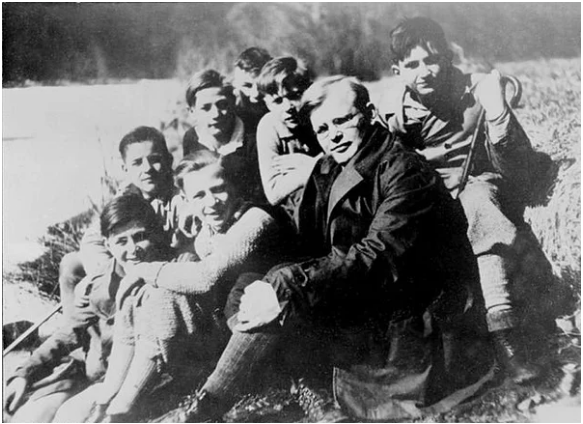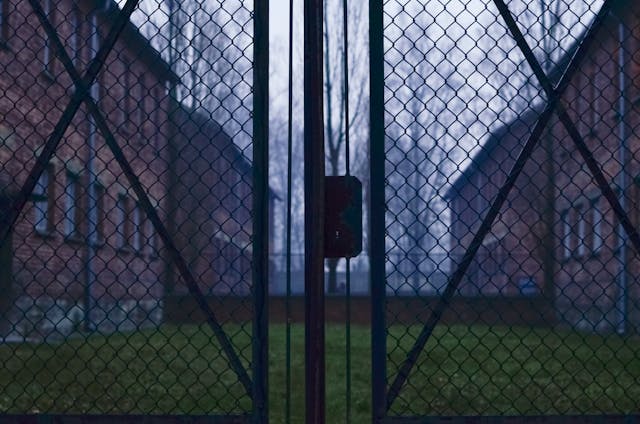Dietrich Bonhoeffer was a German Lutheran pastor and a significant voice of resistance against Nazism. He was also an author and is best known for works such as The Cost of Discipleship and Letters and Papers from Prison. In these works, Bonhoeffer combined his rigorous theological insight with fierce moral courage. He often warned about the dangers of evil men, but also about collective insanity, which he simply referred to as “stupidity”. For Bonhoeffer, it was not malice but stupidity that often caused totalitarianism to thrive. Considering our current political climate, perhaps his words have more pertinence and value now than ever before.
Who Was Dietrich Bonhoeffer?

Dietrich Bonhoeffer was born in Breslau, Silesia (now known as Wroclaw, Poland) in 1906. He was regarded as academically gifted and received doctorates in teaching and theology in London and Berlin. Bonhoeffer was a deeply religious man and stood in strong opposition against Nazism. He co-founded the Confessing Church and broadcasted his sermons against Hitler over the radio, defending Christian doctrines from Nazism. He was even part of a conspiracy within German intelligence that sought to overthrow Hitler. However, Bonhoeffer was unfortunately arrested in 1943. From his prison cell, he reflected on the psychological conditions that make people complicit in humanity’s atrocities. He was subsequently executed at Flossenbürg Prison Camp in April 1945, mere weeks before the collapse of the Nazi regime.
When Stupidity Grows More Dangerous Than Evil

In his prison letters, Dietrich Bonhoeffer once wrote that, “Stupidity is a more dangerous enemy of the good than malice.” This was not meant as a mere insult, but rather a diagnosis of the human condition. Bonhoeffer argued that malice is typically easier to recognize and confront, whereas stupidity can often hide in plain sight. For him, stupidity openly deflects logic, ignores all evidence, and simply shrugs off reason. Bonhoeffer felt that stupidity should be feared by society because it has no real conscience and no desire to learn anything new. Whereas a malicious person can be held accountable, we often tend to treat stupid people as unaccountable, due to their lack of awareness of their own blindness.
Read More: Physicist Claims They Have Uncovered The First Evidence of the Multiverse
Defenseless Against Stupidity

Dietrich Bonhoeffer also once lamented that “against stupidity we are defenseless.” What he meant by that statement is that you cannot reason with a stupid person or educate them once their beliefs become ideological. We are not talking about IQ here, but rather an individual’s stubbornness when it comes to critical thought. Additionally, he pointed out that there is no amount of factual correction that can get rid of beliefs gained through blind loyalty to “groupthink”. This was glaringly apparent in his own era, when his fellow citizens ignored or supported the brutality of the Nazi regime. Bonhoeffer felt that men did not necessarily have to be evil to act this way, but rather simply morally passive.
Evil Can Be Exposed

Dietrich Bonhoeffer was by no means under any illusions when it came to the consequences of the actions of evil men. Yet, he felt that evil had weaknesses; it could be identified, opposed, and even overthrown. He once wrote that “One may protest against evil; it can be exposed and, if need be, prevented by use of force.” However, stupidity is far more slippery, thriving on conformity and social reinforcement and spreading in communities that discourage self-reflection. He witnessed firsthand how smart people, such as doctors and professors, handed over their sense of moral agency to ideals and symbols without looking beneath the surface.
Read More: Hospice Chef Reveals the Most Requested Last Meal by Patients
The Death Of Truth and Facts

He also once remarked that “Facts that contradict one’s prejudgment simply need not be believed… and when facts are irrefutable, they are just pushed aside as incidental.” This is clearly evident in our own era, too. Dietrich Bonhoeffer believed that once individuals had surrendered their critical faculties to a particular ideology, all facts lost their power. He witnessed it with his own eyes as he observed how the German citizens just dismissed the abundant evidence of Jewish persecution and concentration camps. This same dismissal of the facts can be observed in our own time, as people dismiss the evidence that proves climate change or global political upheavals.
Stupidity Isn’t a Lack of Intellect

Dietrich Bonhoeffer made it very clear that he believed that “stupidity doesn’t mean a lack of intellect.” Intelligence is something we are born with. However, he felt that intelligent people could be rendered stupid by surrendering their independent thought to dangerous beliefs. This means that education alone was not the antidote to this particular kind of stupidity. In fact, some of the most intelligent minds of that era whole-heartedly supported the Nazi regime. Bonhoeffer felt that what really mattered was having the courage to use one’s intellect to find truth rather than conform to the desires of those in power. It was ultimately more a critique of intellectual cowardice than mere ignorance.
Read More: A Dark Chapter in German Foster Care: Children Placed with Pedophiles
How Power Can Feed Stupidity

In his writings, Bonhoeffer warned that “Stupidity can be manipulated and used by evil.” He wrote that dangerous leaders are able to capitalize on the ignorance of their followers. Once people start following a certain political or ideological system, they stop thinking and only react. He saw firsthand how the Nazi propaganda worked by appealing to tribal identity and emotion rather than ethics or evidence. Not much has changed in our own time, as we see how online echo chambers and political extremism have resulted from this manipulation.
The Bottom Line

As Bonhoeffer wrote, “The impression one gains is not so much that stupidity is a congenital defect, but that, under certain circumstances, people are made stupid or that they allow this to happen to them.” This sums up how his critique of stupidity is not some insult towards those born with a lack of critical faculties, but rather those who have willingly handed over their independent thought in exchange for dangerous and misguided ideologies. He saw for himself how even the most educated individuals could lose their minds to tribalism, manipulation, and misinformation.
Read More: When Asked About God, Stephen Hawking Had a Very Simple Answer

